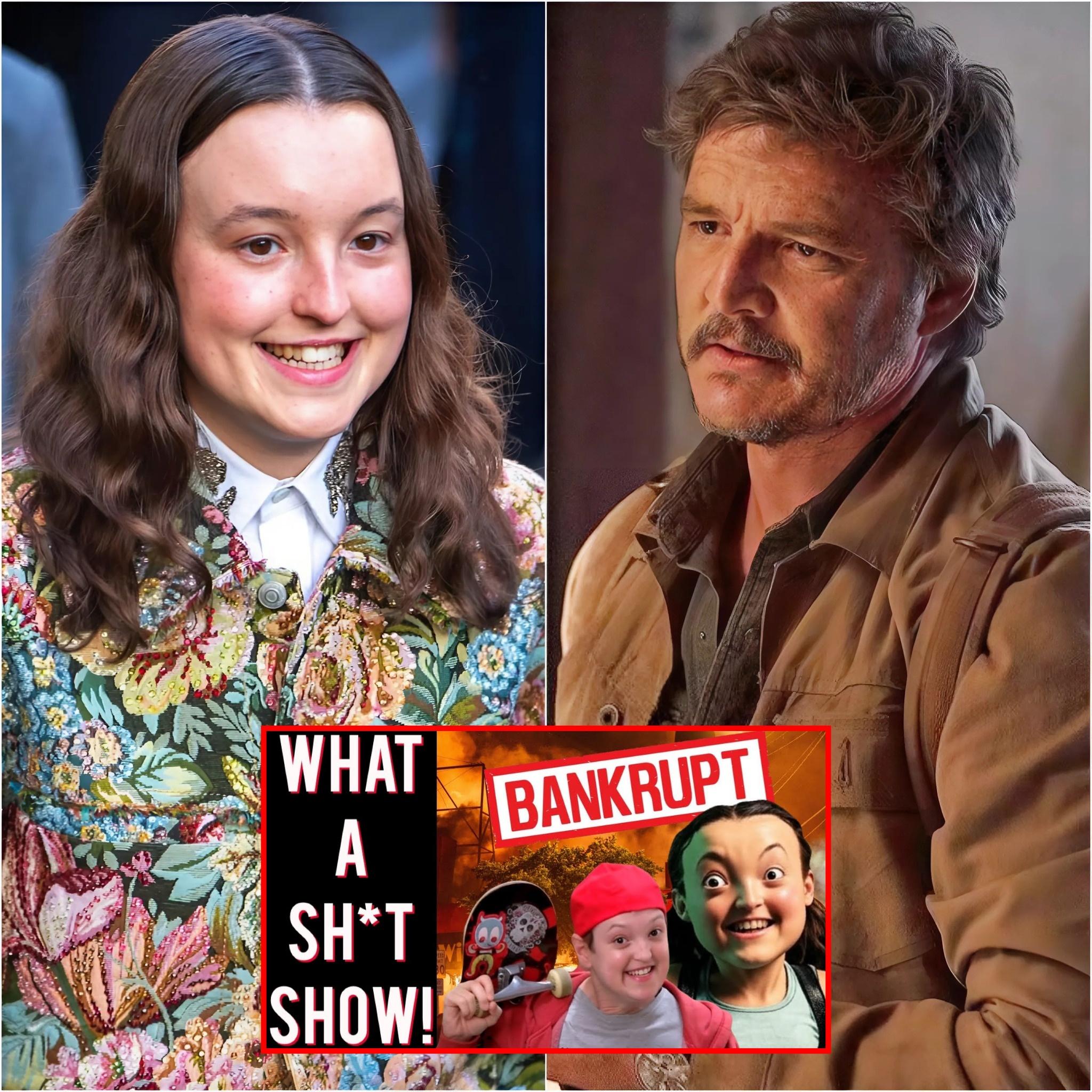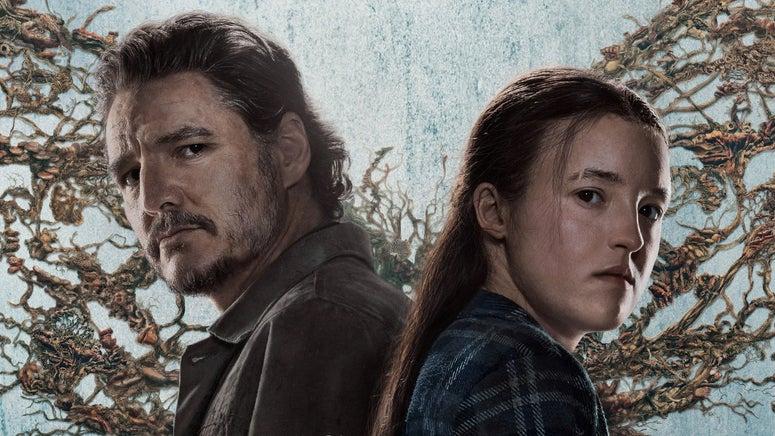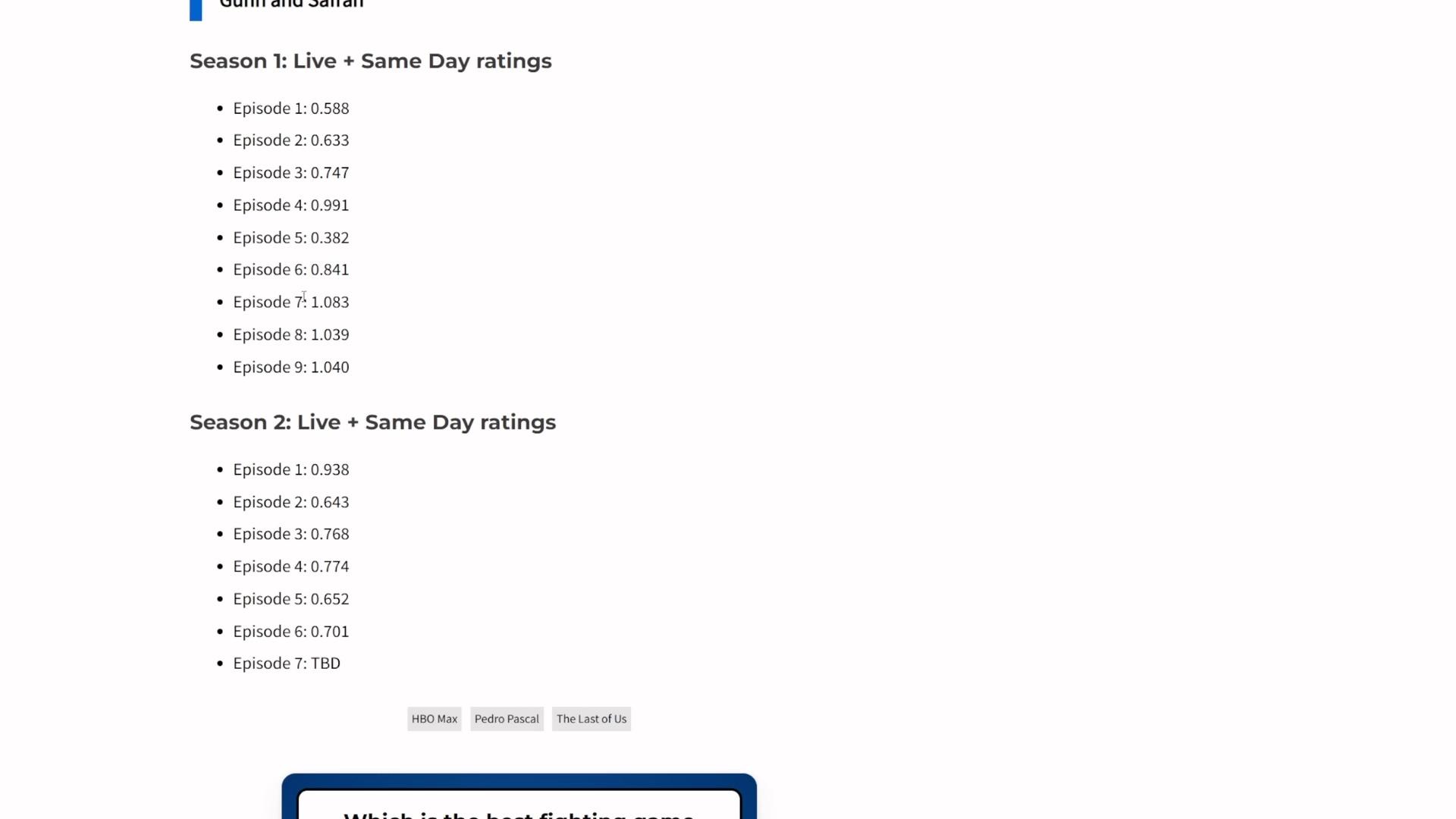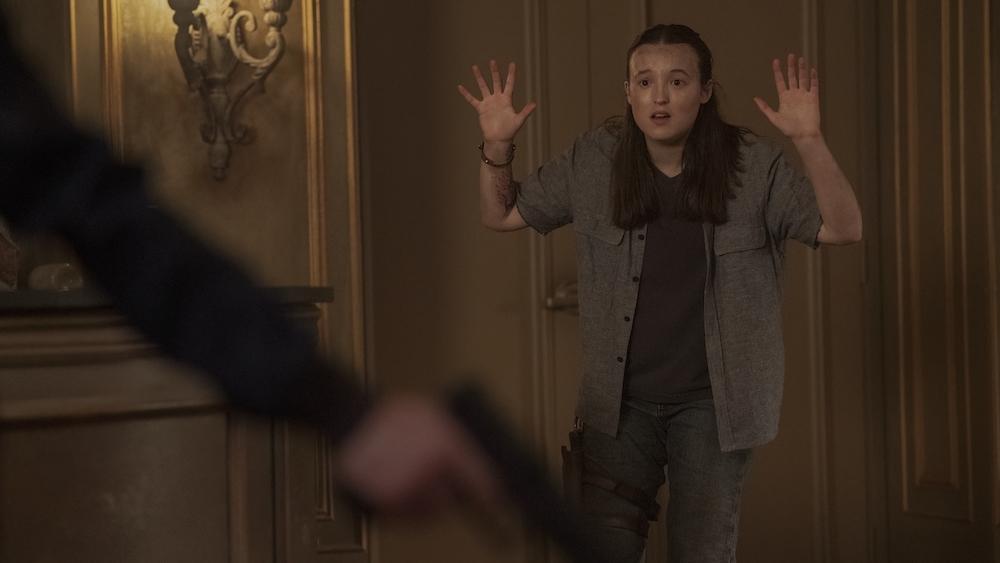HBO’s The Last of Us Season 2 has wrapped, but the numbers tell a story that’s hard to ignore. The season finale, which aired on May 25, 2025, drew just 3.7 million cross-platform viewers in the U.S., a staggering 55% drop from the 8.2 million who tuned in for the Season 1 finale. Even compared to its own premiere, which pulled in 5.3 million viewers, the finale saw a 30% decline. HBO attributes the dip to the Memorial Day weekend, insisting viewership will “grow significantly” with delayed streaming. But is that enough to explain the collapse, or is something deeper at play? Let’s dive into the numbers, fan reactions, and why this once-unstoppable series might be losing its grip.

When The Last of Us Season 1 premiered in 2023, it was a cultural juggernaut. The adaptation of Naughty Dog’s beloved video game smashed records, averaging 32 million viewers per episode globally and becoming HBO Max’s most-watched show in Europe and Latin America. Season 2 kicked off strong on April 13, 2025, with 5.3 million viewers—a 13% increase over Season 1’s debut. Yet, the momentum didn’t hold. By the finale, viewership plummeted, leaving fans and analysts wondering what went wrong.
The show’s second season, based on the first half of The Last of Us Part II, took bold risks. Most notably, it shocked audiences with the early death of Joel (Pedro Pascal), a fan-favorite character, in Episode 2. The brutal scene, faithfully adapted from the game, saw Abby (Kaitlyn Dever) kill Joel in front of Ellie (Bella Ramsey). While gamers knew this twist was coming, TV viewers—many unfamiliar with the source material—felt blindsided. Social media erupted, with fans like @98Ngin on X calling the scene “even worse” than in the game, citing its visceral brutality and Ellie’s helplessness.

Joel’s death sparked a firestorm. For many, he was the emotional anchor of the series, and his exit left a void. Viewership data reflects this: Episode 2 saw a 31.5% drop to 643,000 linear viewers from the premiere’s 938,000, with only a slight rebound in Episode 3 to 768,000. Audience scores also tanked, with Rotten Tomatoes dropping from 87% in Season 1 to 49% in Season 2, and Metacritic scores falling from 6.6 to 3.9. Fans voiced frustration over the abrupt shift to Ellie as the lead and the season’s darker tone, with some calling it “too bleak” or accusing the show of leaning into shock value over substance.
HBO remains optimistic, noting that Season 2 averages 37 million global viewers per episode, surpassing Season 1’s 32 million. But the finale’s cliffhanger—teasing Abby’s perspective in Season 3—hasn’t quelled doubts. Critics like those at Tom’s Guide argue the show lost the game’s mystery by revealing Abby’s motives too early, while others question whether splitting Part II across multiple seasons was a misstep. On X, users like @WokeInfected point out parallels to the game’s divisive reception, where The Last of Us Part II saw a 37% drop in player ratings and a 66% drop in sales compared to the first game.

Despite the backlash, HBO has greenlit Season 3, with showrunner Craig Mazin hinting at a four-season arc. The cast, including Bella Ramsey, Isabela Merced (Dina), and Young Mazino (Jesse), continues to earn praise for their performances, and the show’s production values remain top-tier, with over 600 visual effects shots in Episode 2 alone. Yet, the challenge lies in winning back viewers who felt alienated by Season 2’s bold choices. Some argue the show’s fidelity to the game’s controversial narrative—while brave—may have underestimated TV audiences’ attachment to Joel. Others, like @Vara_Dark on X, predict a further drop when Season 3 focuses on Abby, a character many still resent.
HBO’s claim that Memorial Day dampened viewership holds some weight—holidays often disrupt live TV—but the sustained decline across the season suggests deeper issues. Fans on Reddit’s r/television lament the cliffhanger ending and the long wait for Season 3, expected in 2027, with some calling the pacing “disorienting.” Meanwhile, critics at IGN note that Ellie’s vengeful arc, while gripping, feels incomplete without the context of Season 3.

The Last of Us Season 2 took risks that didn’t fully pay off, but there’s still hope. The show’s global audience of over 90 million since Season 1 proves its staying power, and delayed streaming could boost finale numbers. For now, HBO faces a tough road to rebuild trust. Will Season 3’s focus on Abby and Ellie’s ongoing journey recapture the magic, or has the show lost its spark? Share your thoughts below—did Joel’s death ruin the season for you, or are you still hooked? Let’s discuss




